The Guardian Council has approved eight out of 686 candidates to run in Iran’s June 14 presidential election. The unelected body of 12 clerics and scholars rejected two individuals who might have been key contenders ― former President Akbar Hashemi Rafsanjani and Esfandiar Rahim Mashaei, President Mahmoud Ahmadinejad’s chief of staff. The approved group includes four hardliners who are close to Supreme Leader Ayatollah Ali Khamenei. The following are profiles of the eight candidates.
Mohsen Rezaei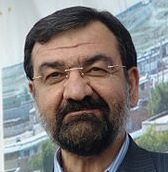 Born in 1954, he is the current Secretary of the Expediency Council, the powerful body charged with resolving disputes between parliament and the Guardian Council. Rezaei is also a former chief of the Islamic Revolutionary Guards Corps. He unsuccessfully ran for parliament in 1999, and for the presidency in 2005 and 2009. He finished third in 2009 with 1.7 percent of the vote, far behind Mahmoud Ahmadinejad and reformist challenger Mir Hossein Mousavi.
Born in 1954, he is the current Secretary of the Expediency Council, the powerful body charged with resolving disputes between parliament and the Guardian Council. Rezaei is also a former chief of the Islamic Revolutionary Guards Corps. He unsuccessfully ran for parliament in 1999, and for the presidency in 2005 and 2009. He finished third in 2009 with 1.7 percent of the vote, far behind Mahmoud Ahmadinejad and reformist challenger Mir Hossein Mousavi.
 Born in 1951, he served as vice president under former President Mohammad Khatami from 2001 to 2005. Since 2002, he has been a member of the powerful Expediency Council, the body charged with resolving disputes between parliament and the Guardian Council. Aref studied electrical engineering and reportedly did graduate work at Stanford University in the late 1970s. He was a professor at Isfahan University of Technology from 1981 to 1994. Aref then served as president of Tehran University from 1994 until 1997, when he was appointed telecommunications minister. He is widely considered to be the most reform-minded of the candidates.
Born in 1951, he served as vice president under former President Mohammad Khatami from 2001 to 2005. Since 2002, he has been a member of the powerful Expediency Council, the body charged with resolving disputes between parliament and the Guardian Council. Aref studied electrical engineering and reportedly did graduate work at Stanford University in the late 1970s. He was a professor at Isfahan University of Technology from 1981 to 1994. Aref then served as president of Tehran University from 1994 until 1997, when he was appointed telecommunications minister. He is widely considered to be the most reform-minded of the candidates.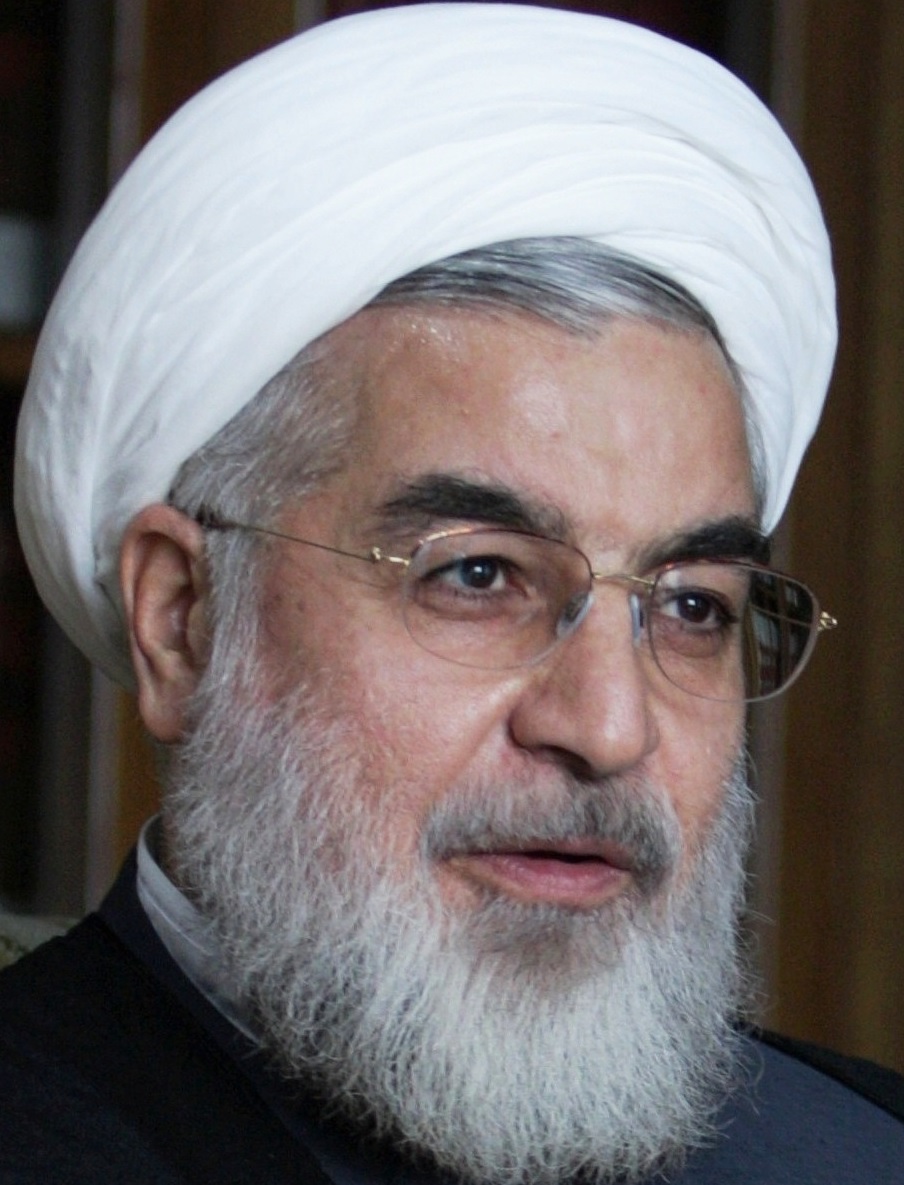 Born in 1948, the conservative cleric headed the Supreme National Security Council for 16 years from 1989 to 2005. Rouhani has also acted as lead nuclear negotiator in earlier rounds of diplomacy with European powers. Hardliners charged that he was too accommodating in negotiations. He resigned after President Ahmadinejad took office in 2005. Rouhani is currently a senior member of the Expediency Council.
Born in 1948, the conservative cleric headed the Supreme National Security Council for 16 years from 1989 to 2005. Rouhani has also acted as lead nuclear negotiator in earlier rounds of diplomacy with European powers. Hardliners charged that he was too accommodating in negotiations. He resigned after President Ahmadinejad took office in 2005. Rouhani is currently a senior member of the Expediency Council.
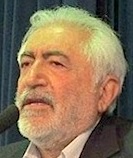 Born in 1941, Gharazi was telecommunications minister from 1985 to 1997, partly under Rafsanjani’s administration. He reportedly studied electronics as a graduate at Tehran University and then served in the Revolutionary Guards during the 1980-1988 war with Iraq. Gharazi also served in parliament and was oil minister from 1981 to 1985.
Born in 1941, Gharazi was telecommunications minister from 1985 to 1997, partly under Rafsanjani’s administration. He reportedly studied electronics as a graduate at Tehran University and then served in the Revolutionary Guards during the 1980-1988 war with Iraq. Gharazi also served in parliament and was oil minister from 1981 to 1985. Born in 1965, Jalili has been secretary of the Supreme National Security Council and head nuclear negotiator since 2007. He served in the Basij paramilitary under the Revolutionary Guards during the war with Iraq. Jalili ran the supreme leader’s office from 2001 to 2005. In 2005, newly elected President Mahmoud Ahmadinejad appointed Jalili, a personal friend, to be deputy foreign minister for European and American affairs.
Born in 1965, Jalili has been secretary of the Supreme National Security Council and head nuclear negotiator since 2007. He served in the Basij paramilitary under the Revolutionary Guards during the war with Iraq. Jalili ran the supreme leader’s office from 2001 to 2005. In 2005, newly elected President Mahmoud Ahmadinejad appointed Jalili, a personal friend, to be deputy foreign minister for European and American affairs.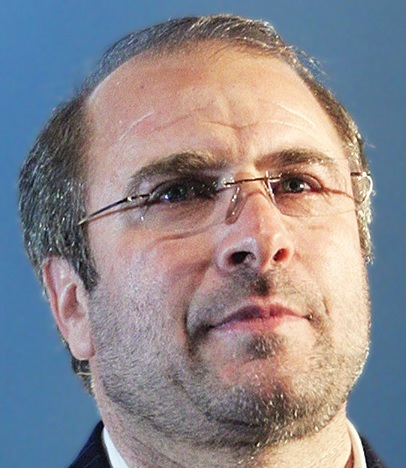 Born in 1961, he has been the mayor of Tehran since 2005. Son of a dried-fruit seller, Qalibaf served in the Revolutionary Guards and rose to high ranks during and after the war with Iraq. He became the commander of the Revolutionary Guards’ air force and was chief of the Law Enforcement Force from 2000 to 2005. Qalibaf received less than 14 percent of the vote in the 2005 presidential election against Ahmadinejad.
Born in 1961, he has been the mayor of Tehran since 2005. Son of a dried-fruit seller, Qalibaf served in the Revolutionary Guards and rose to high ranks during and after the war with Iraq. He became the commander of the Revolutionary Guards’ air force and was chief of the Law Enforcement Force from 2000 to 2005. Qalibaf received less than 14 percent of the vote in the 2005 presidential election against Ahmadinejad.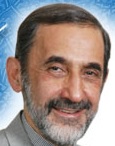 Born in 1945, he is the supreme leader’s principal foreign policy adviser. Velayati served as foreign minister under Khamenei and Rafsanjani from 1981 to 1997. Velayati serves on the Expediency Council. In 2005, he ran for president but later withdrew and supported Rafsanjani instead. Velayati has indicated that he may drop out in support of Saeed Jalili.
Born in 1945, he is the supreme leader’s principal foreign policy adviser. Velayati served as foreign minister under Khamenei and Rafsanjani from 1981 to 1997. Velayati serves on the Expediency Council. In 2005, he ran for president but later withdrew and supported Rafsanjani instead. Velayati has indicated that he may drop out in support of Saeed Jalili. Born to a business family in 1945, he is a member of parliament from Tehran. Haddad-Adel served as parliament’s speaker from 2005 to 2008. Haddad-Adel is reportedly a close confidant of Supreme Leader Ayatollah Ali Khamenei. His daughter is married to the Khamenei’s son. Haddad-Adel is also a current member of the Expediency Council.
Born to a business family in 1945, he is a member of parliament from Tehran. Haddad-Adel served as parliament’s speaker from 2005 to 2008. Haddad-Adel is reportedly a close confidant of Supreme Leader Ayatollah Ali Khamenei. His daughter is married to the Khamenei’s son. Haddad-Adel is also a current member of the Expediency Council.
